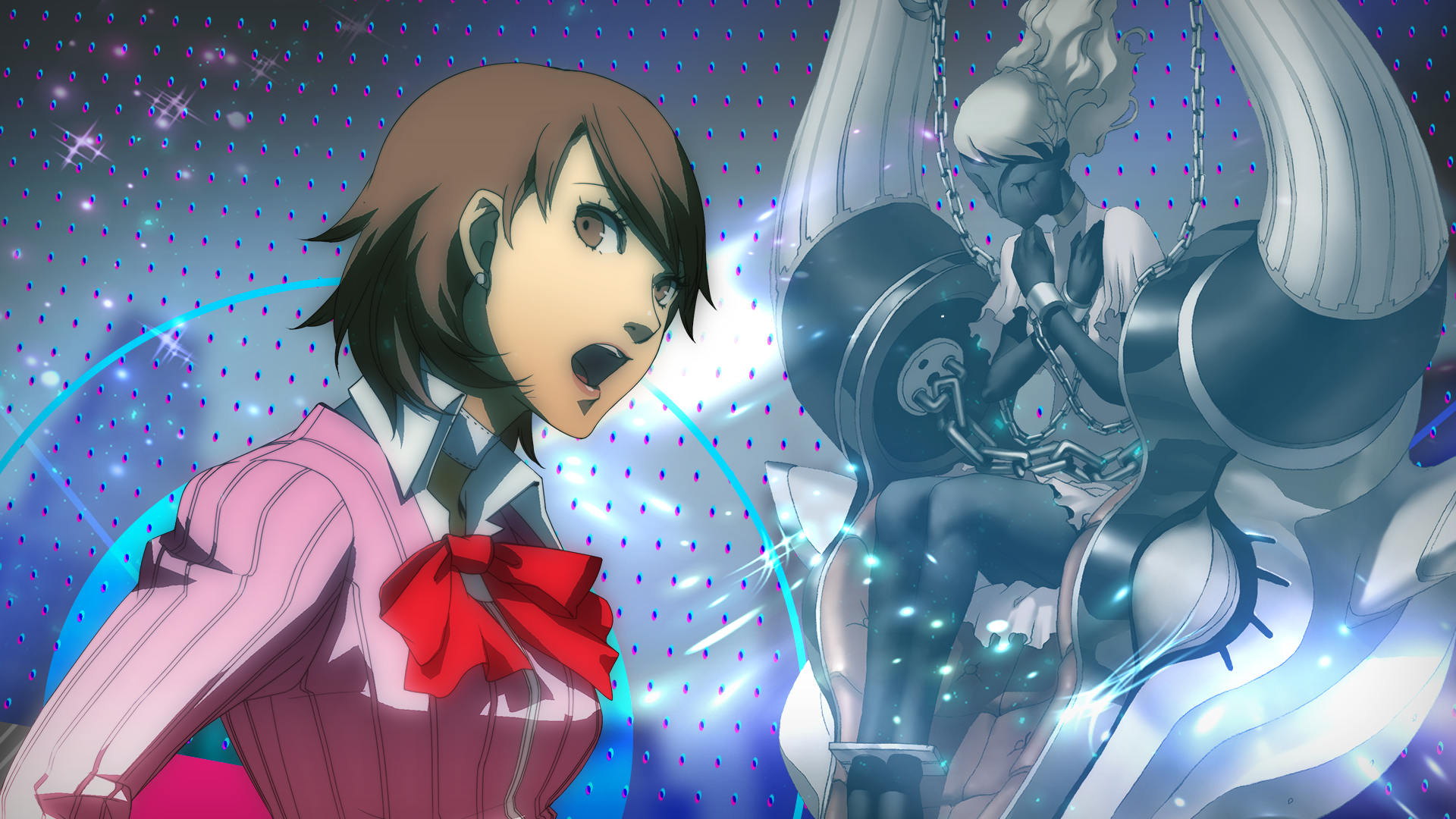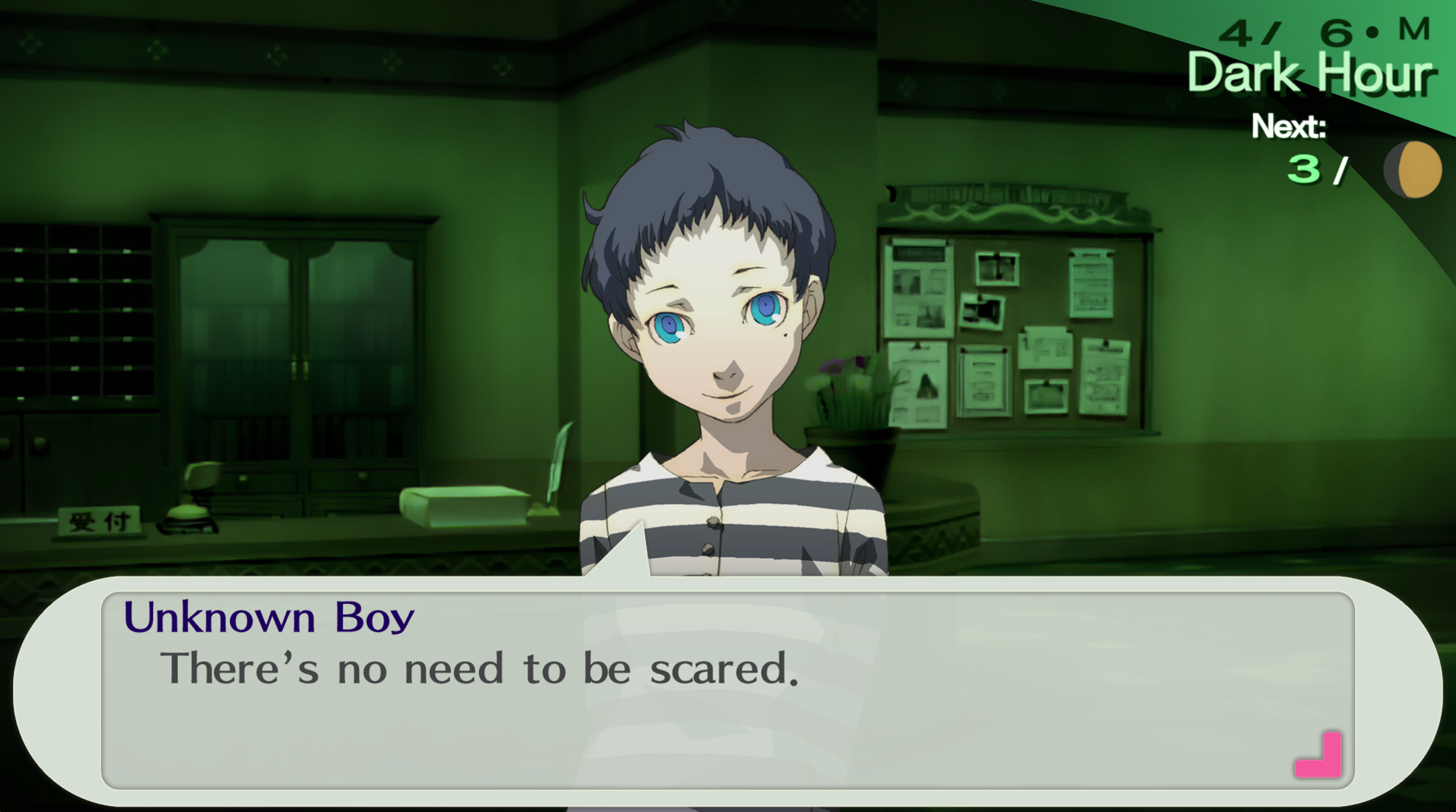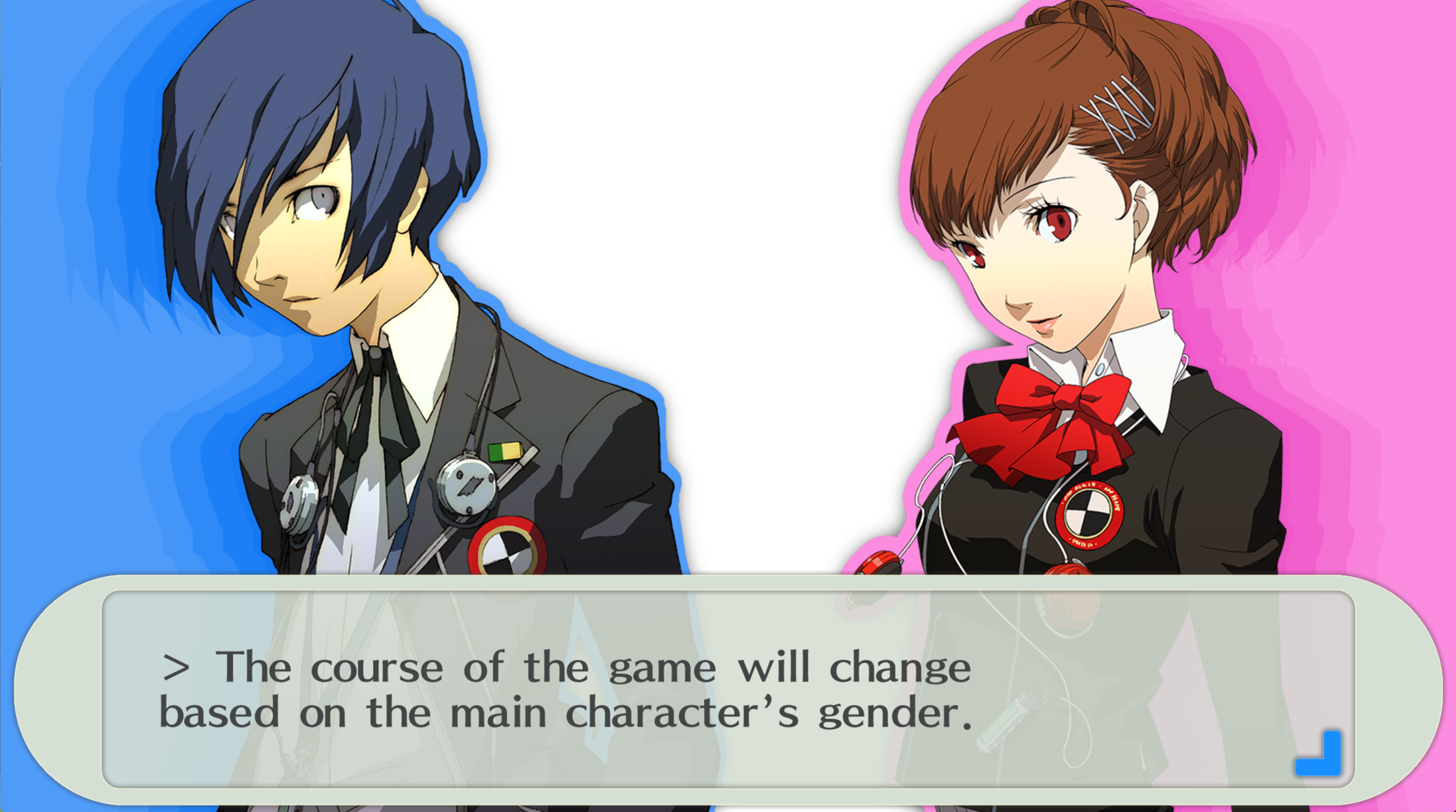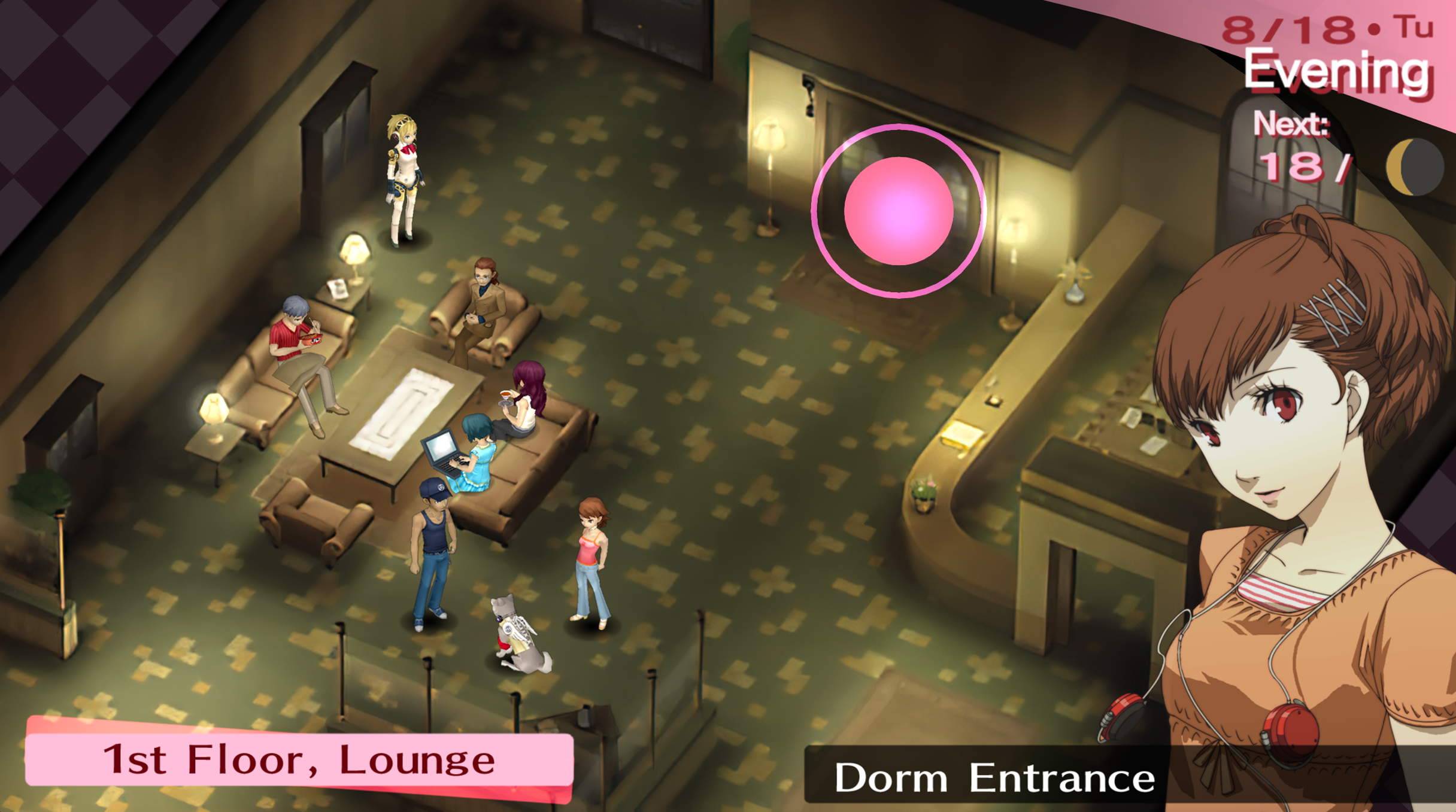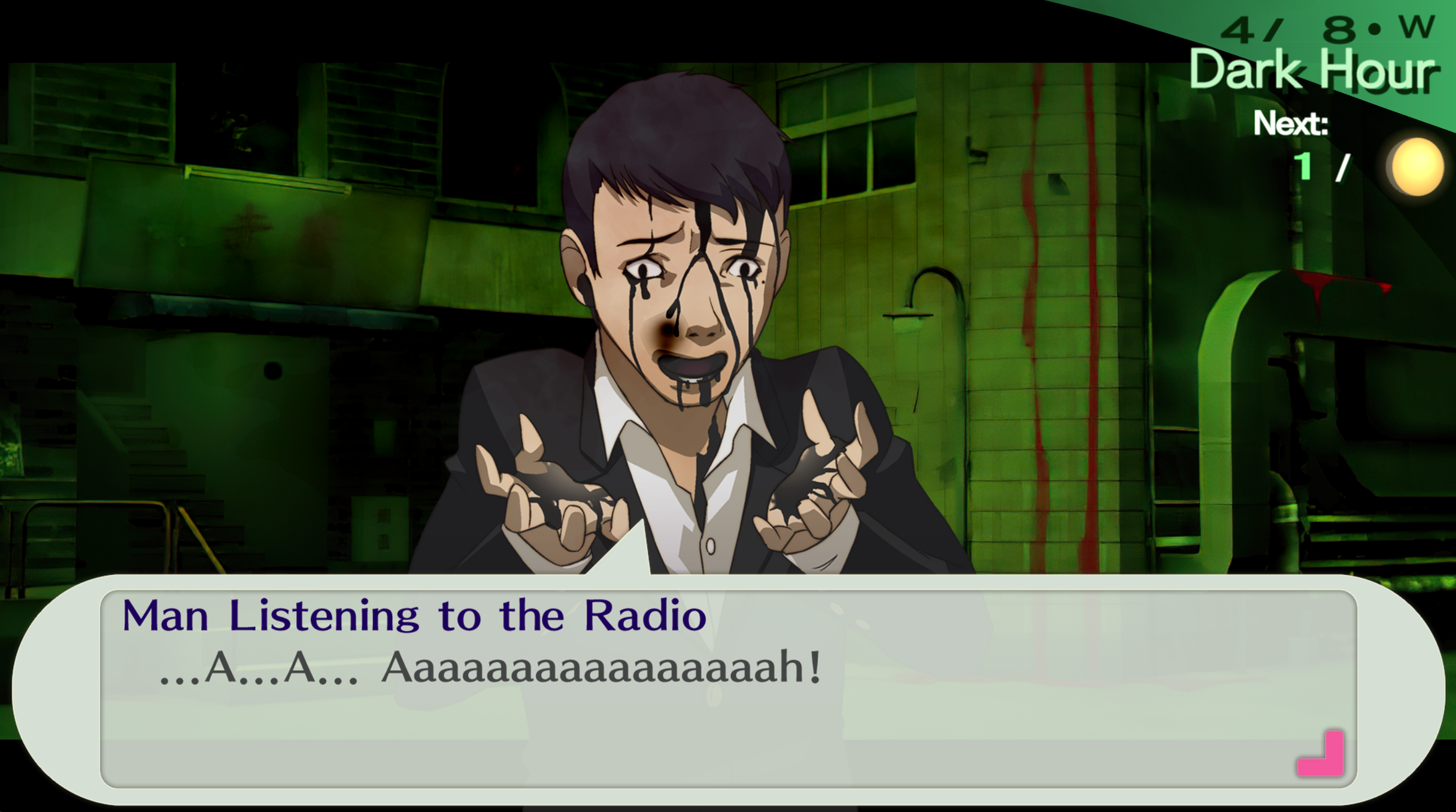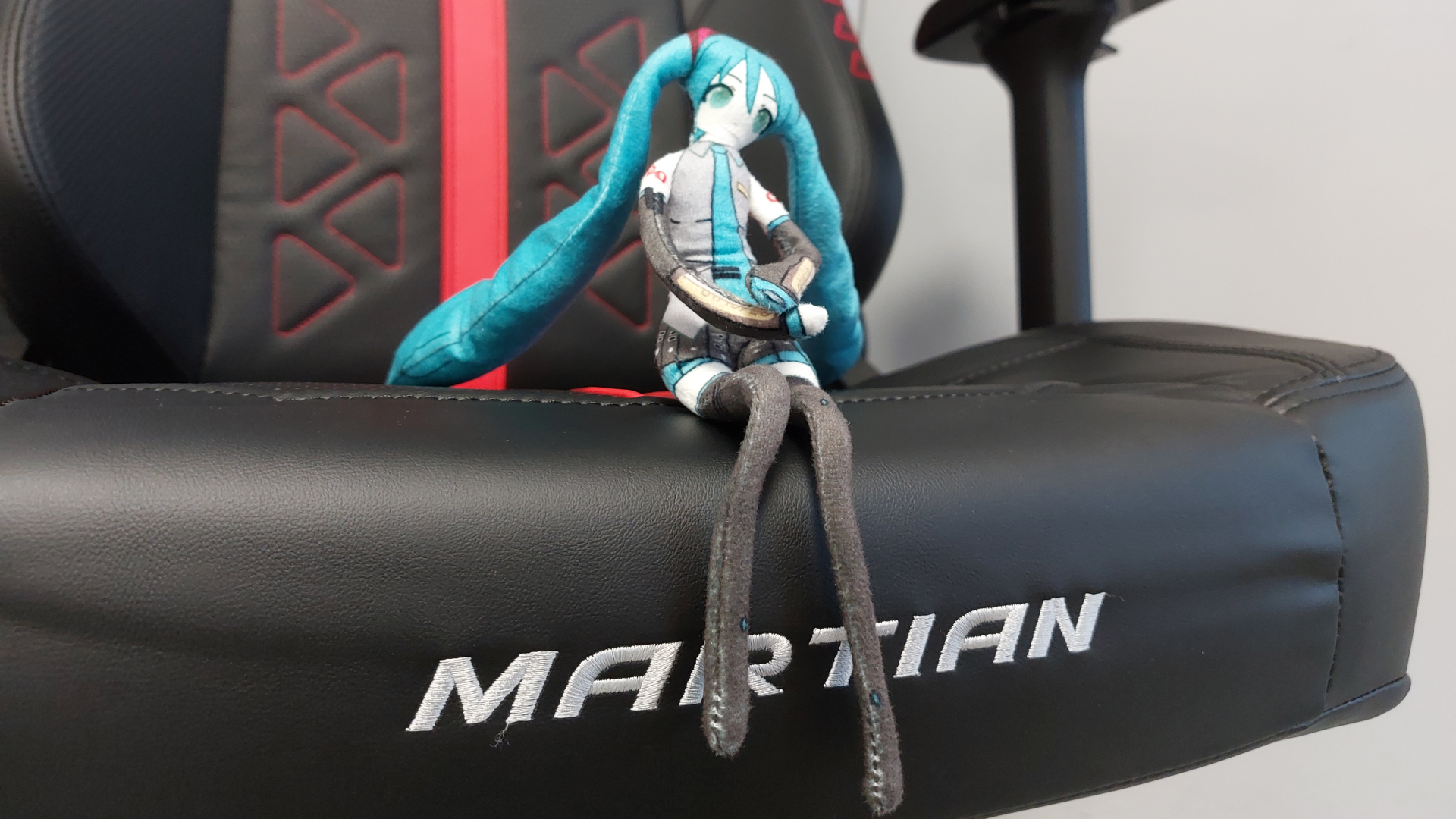Our Verdict
A PSP classic with systems that show age, but P3P's retelling remains a series best for its stylishly eerie world and intimate look at mortality.
PC Gamer's got your back
All of my worst thoughts strike in the ungodly hours after midnight. It's quiet, noises I wouldn't usually notice grow louder, and I'm painfully aware of every shadowy figure in an unlit room. Sometimes my anxieties spiral thanks to a weird pile of clothes or a blanketless foot. Sometimes it's just a little too dark, and the eerie abyss of a dark bedroom goes full-on existential horror.
What is it? A port of Persona 3's PSP release that includes a new protagonist, battle system changes, and a shift to visual novel-style gameplay.
Expect to pay: $20
Developer: Atlus
Publisher: Sega
Reviewed on: Intel Core i7 - 10700k CPU, 64GB RAM, GeForce RTX 3080, Steam Deck
Multiplayer? No
Out: January 19
Link: Official Site
Persona 3 Portable's fretful cast must share that midnight dread with me, though they have more supernatural terrors to blame. This RPG blend of high school and gothic apocalypse welcomes you with a litany of reminders that time is always running out, and before you even know what it's counting down to, Persona 3 starts the clock. You've got a year to figure out who, or what, the race is against.
Persona 3 shares most of the social RPG hallmarks I adored in Persona 4 and Persona 5. There's the day-to-day studying, flirting, exams, and other school-life woes. At night, the focus shifts to dungeon crawling through the mysterious labyrinth Tartarus. You'll do the usual persona collecting and Shadow slaying along the way, desperately searching for the omnipotent big bad torturing the city during its nightly Dark Hour. The PC debut is a port of the 2009 PSP retelling, which is divisive for its changes to the sort of "director's cut" version of the game, the PlayStation 2's Persona 3 FES. It's better in some ways and questionable in others.
In Portable, Atlus streamlined its approach by replacing most 3D environments with a 2D, point-and-click system and dropping the anime video cutscenes. Events play out through in-game models, text, and static artwork. Think more visual novel-like, but with breaks to 3D for dungeon crawling and turn-based battles. It also removes a lengthy epilogue added in FES but adds a female protagonist route.
Those differences are all the same here, but the Persona 3 Portable PC release throws in some quality-of-life tweaks, remastered graphics, and Japanese voiceover options.
Dreadfully good
Portable's PSP origins have grown obvious with age—some scenes work just fine without their original animations, while others fall a bit flat—but the setting remains just as eerie as it was years ago. Those highs and lows start early, when the main character summons their Persona for the first time with the gun-like Evoker pressed to their temple. The moment's tension, once highlighted with an anime cutscene, doesn't come through with just the in-game models. There's not much animation in the original, but this is one of the few moments where the absence hurts.
By selecting the female route, I found several friendships and day-to-day interactions change for the better
I miss those sequences, but the world's discomfort and struggles with mortality come through in the writing and art. Everything feels haunted, and when the clock ticks over to the Dark Hour, Persona 3 taps into cosmic unease with style. Grungy layers of green, blue, and yellow coat the world in shades of anxiety, while the way Tartarus towers over everything establishes its horrifying scale. The Shadows inhabiting the massive dungeon come in all matter of unnatural shapes and movements. Their creepy distortions make climbing the hellish structure less dull, even when I get caught up in comical games of tag trying to sneak up on them.
Keep up to date with the most important stories and the best deals, as picked by the PC Gamer team.
I default to Portable's female protagonist primarily out of preference for a few Social Link changes made from the male version, and some new music. Her iconic blue-bobbed counterpart is the guy referenced in more Persona 3-related spin-offs, and the game has a weird moment in character selection where it claims his arc is the better first experience. I see no point in heeding that warning. Neither path needs context from spin-offs or the FES-exclusive epilogue to bring its story to a satisfying end.
Portable cleans up the writing in some areas, too. By selecting the female route, I found several friendships and day-to-day interactions change for the better. A few members of your core team (Shinjiro, Akihiko, and Junpei) only have Social Links available through her path, but you'll still maintain friendship options with the other high school girls in your party. Getting to know characters like Junpei—the resident tough guy nuisance—makes his foot-in-mouth babbling more empathetic. Pivotal story beats retain their themes with either protagonist, but I find those turning points more fulfilling after deepening relationships with the crew.
It's a long way up
A looming hell tower that ruptures the city skyline absolutely rules, but it adds hours of endless are-we-there-yet grind
While Persona 3's art direction, cast, and constant ruminations on fear make it one of Atlus' best, the monotonous dungeon crawling does not. You'll have the option to visit Tartarus on most nights, but the skyscraper-like dungeon isn't nearly as dynamic as those found in Persona 4 or Persona 5. Conceptually and visually, a looming hell tower that ruptures the city skyline every night absolutely rules, but in practice, it adds hours of endless are-we-there-yet grind to the journey.
Combat hurts and helps. Portable is, without a doubt, the better version of Persona 3's battle system. On the PlayStation 2, you only had control over the main character's actions, and AI commanded everyone else. Portable lets the player control the entire party, so the game no longer feels needlessly punitive thanks to AI goofs. That was always one of my biggest gripes with FES—silently praying for Mitsuru to heal me, only to watch her consign me to death.
It wouldn't be Persona without collecting the sometimes horrifying, sometimes adorable demons you'll summon along the way. Fusing together personas excites the part of my brain that loves a disgusting excel spreadsheet, but how that information is packaged makes a world of difference. I've got a lot of love for completing the Persona Compendium with every possible demon combination, but dipping in and out of more complex recipes to look for a particular skill or creature wears on me.
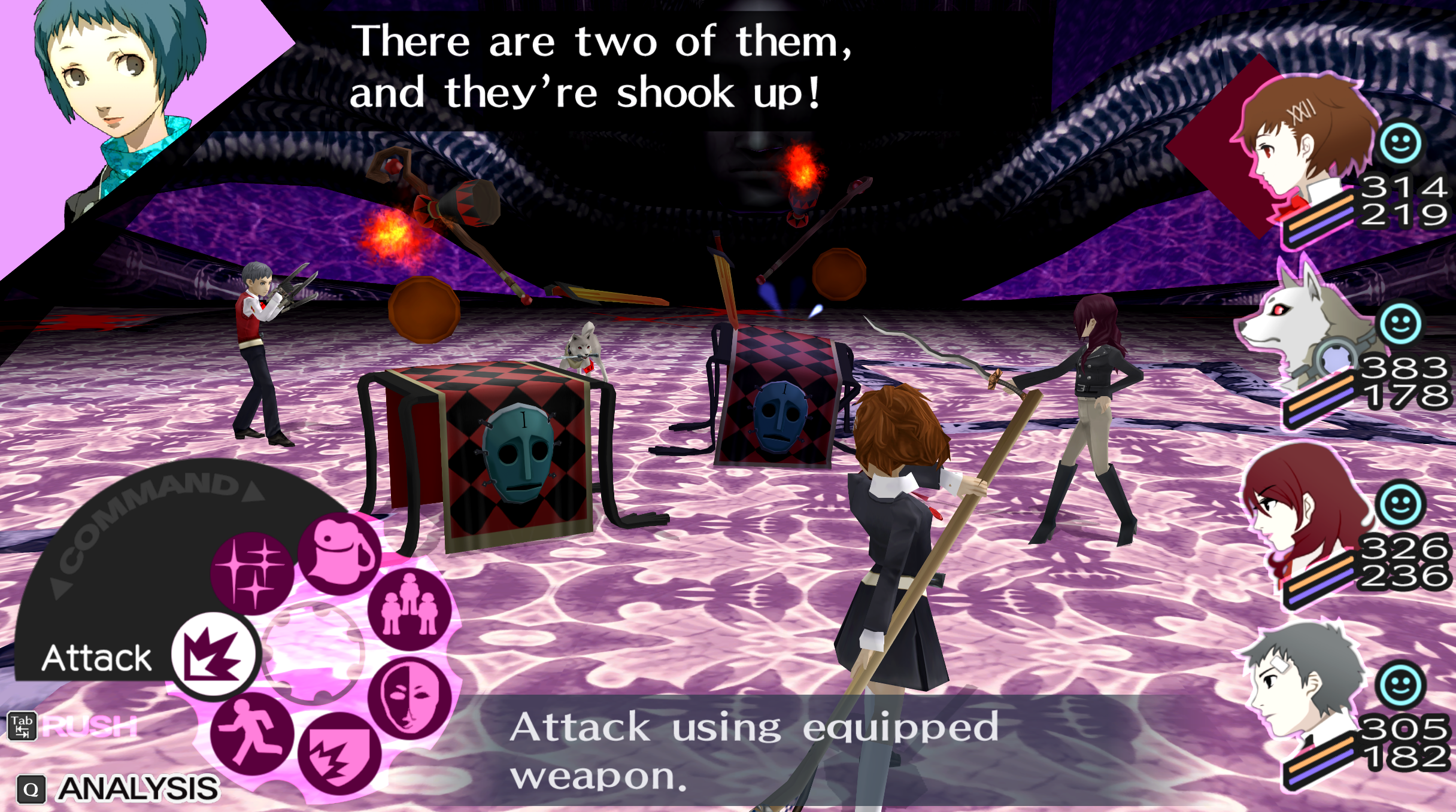
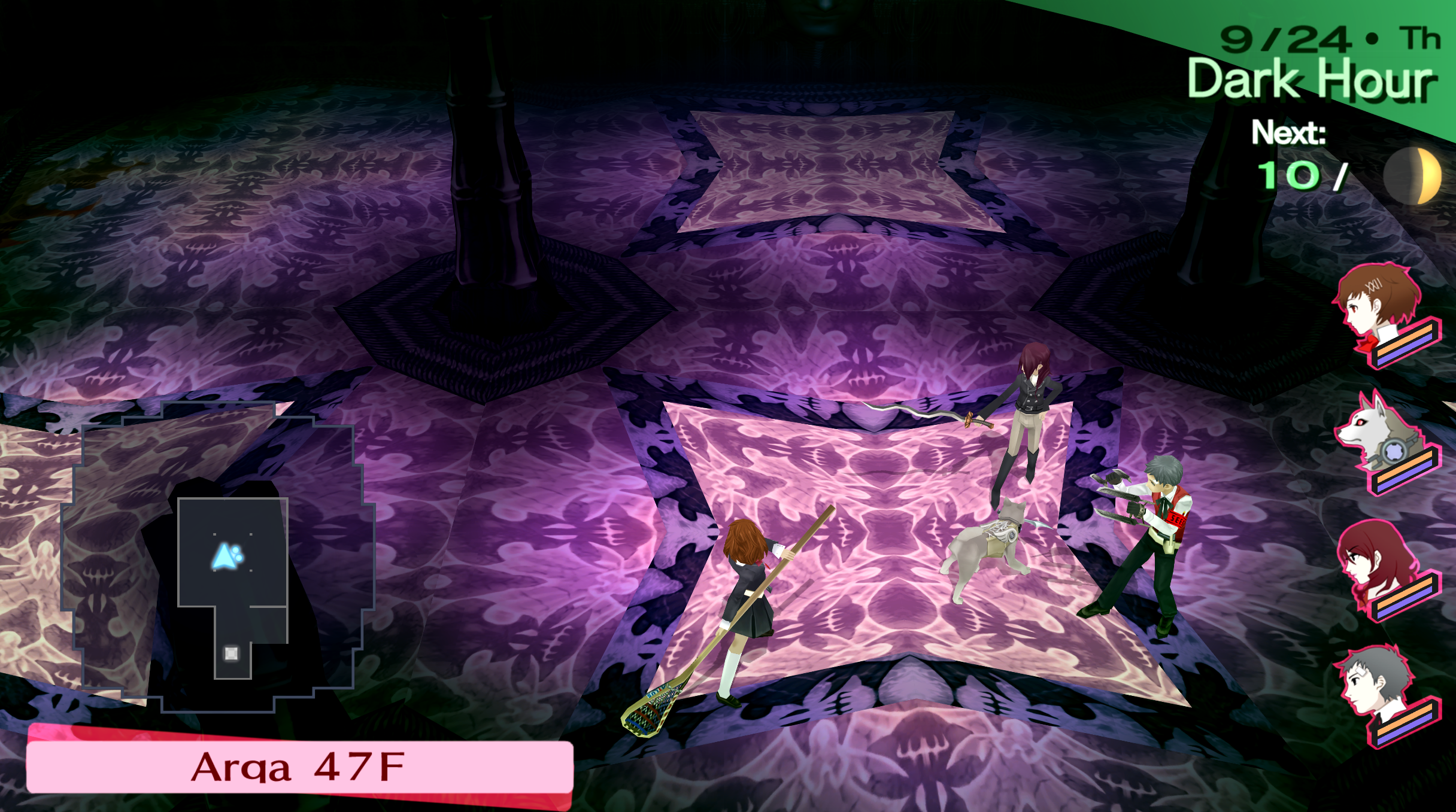
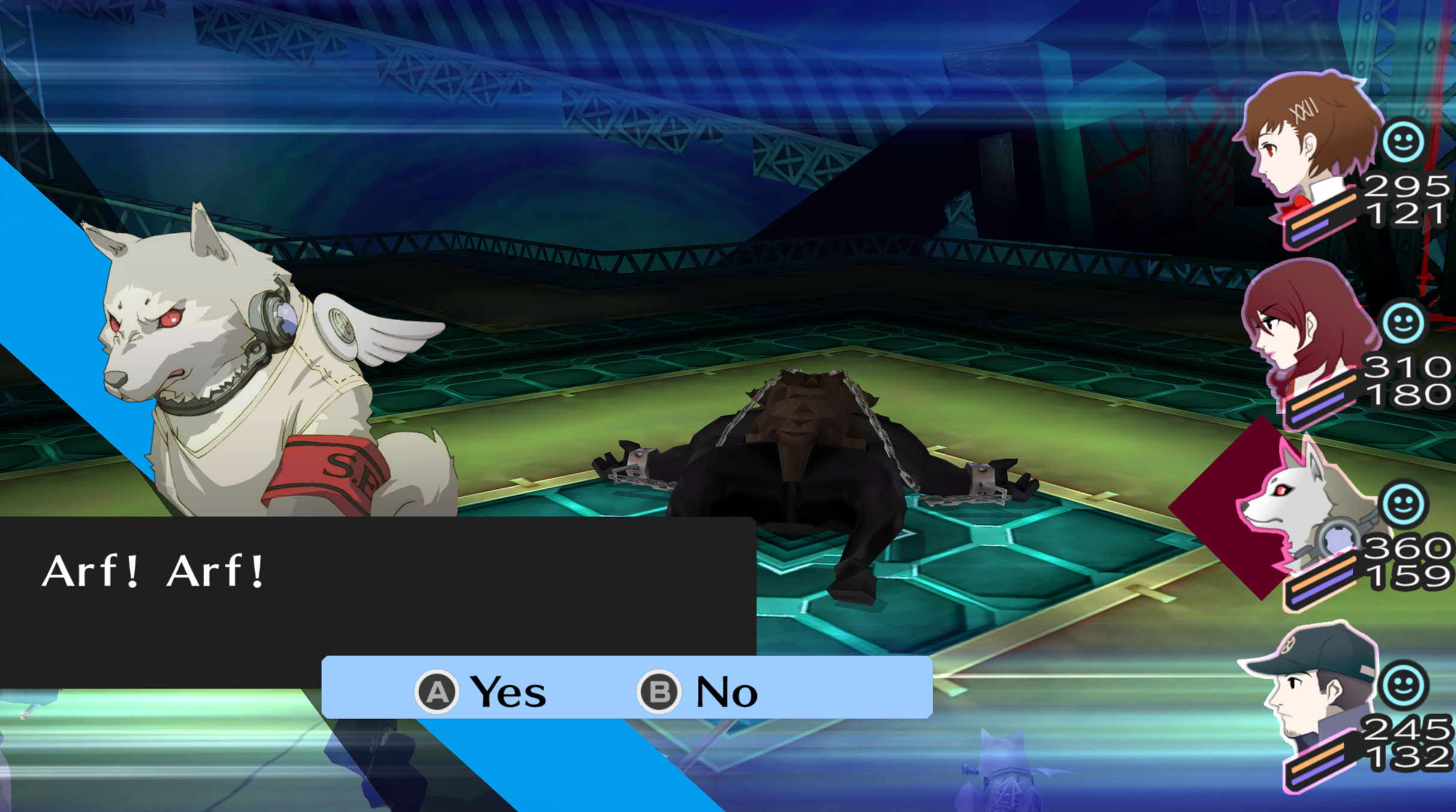
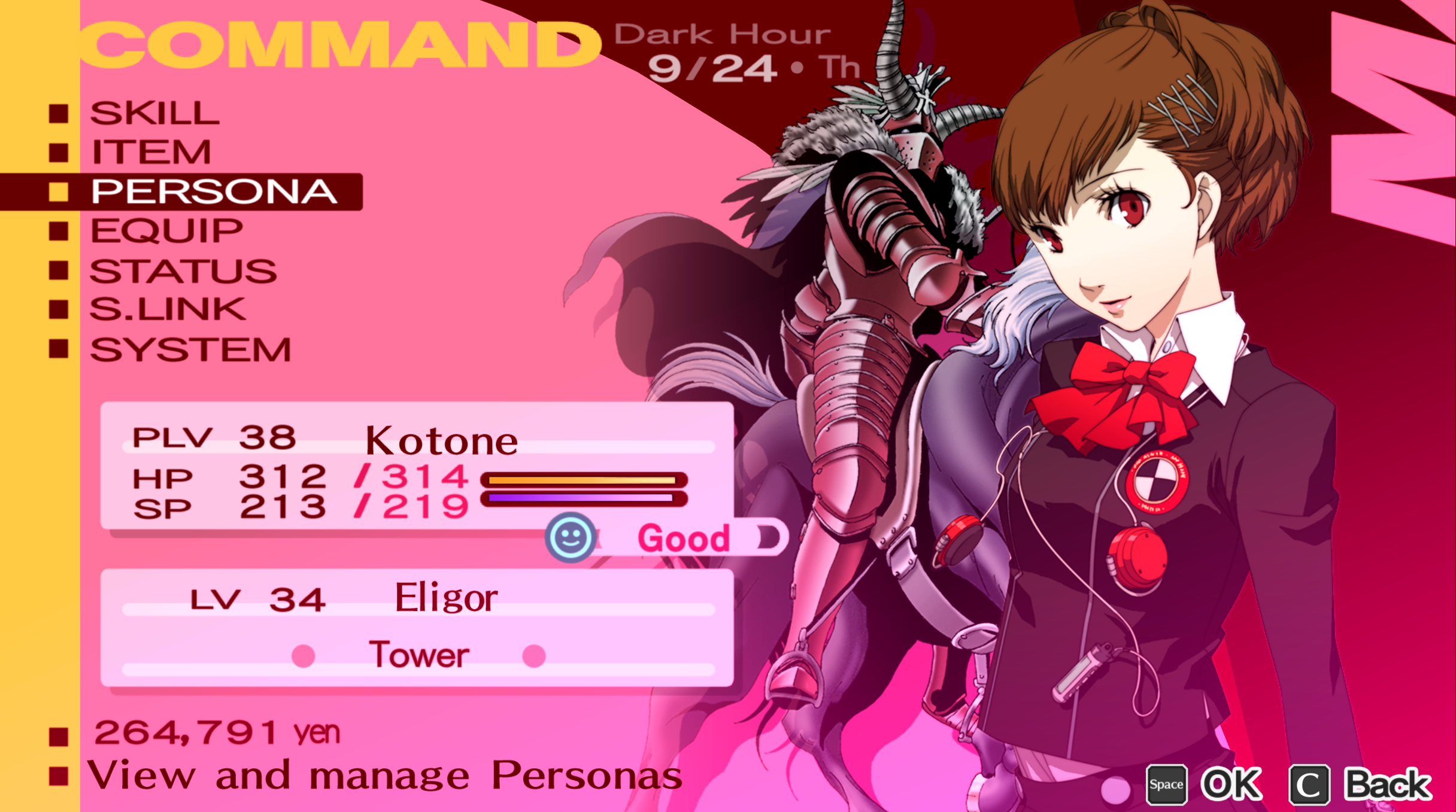
It's not entirely fair, but it's hard not to compare P3P's demon recipes to its modern successors here. While the fifth game simplified things like the three-way fusion and paced its options, Portable dumps a list on the table and lets me piece them all together in a complex game of Guess Who. There were times I took more care, searching diligently for the creatures I needed, but I often performed the equivalent of opening up my fridge at night and grabbing a fistful of shredded cheese. I have no idea if this meets my nutritional needs, but I can't be bothered to cook anything else.
This combat feels like a rough draft for later Personas, but I still appreciate the turn-based combos present throughout the series. You'll encounter roaming Shadows, try to strike them first to begin the encounter, then analyze and exploit their elemental weakness. Even after all these years, I still haven't learned my lesson and occasionally try to brute-force my way through. Shadows punish that behavior even on normal difficulty, wiping my entire party if I don't apply thoughtful strategies. Depending on how long I've spent climbing Tartarus for the night, I'll either rave about how tight and satisfying the whole process is or bemoan how it drags.
Drag-and-click
Portable's pivot from a 3D overworld to a 2D environment remains one of its more contentious choices, but in retrospect, you're stuck navigating the same handful of teensy "open" maps for damn near 70 hours. I'll take the accelerated point-and-click movement. I say point-and-click, but that's not entirely accurate, either. It's more drag-and-click, which can be as tedious as it sounds without customizing the controls. Instead of hovering over a target and left-clicking, imagine your mouse emulating an analog stick. On the world map, the PSP-era cursor must slide from Point A to Point B to make a selection. You can accelerate the movement speed, and simple double-clicking seemed to work when there wasn't much distance for the cursor to travel. It was a bit finicky, but if you set a keybind to make the movement faster, it's not bad. I recommend plugging in a controller or using the Steam Deck.
The PC version's configuration options offer plenty of remappable schemes and other settings that consistently played nice with my setup. On my desktop, playing fullscreen at 3840×2160, 120 FPS, with the rest of Persona 3 Portable's settings cranked up to high didn't cause any issues. The game is almost as old as its high-school-aged protagonist, but I'm relieved I'm not adding troubleshooting to the grind.
For the most part, Portable looks great, but some environments and models fared better than others in the remaster treatment. Backgrounds with more lighting effects suffer the most, adding messy layers of grain to the art. It's nothing catastrophic, and the upscaled makeover remains a significant improvement.
The end will come
It's a relief to revisit Persona 3 Portable through its PC port and realize my fascination with the world isn't just childhood sentiment. A keen sense of sadness and dread sets in the further you go—one of those painful, uneasy feelings in your chest you can't quite place. The otherworldly discontent bleeds through everywhere in the best ways, whether in the haunting tick of the Dark Hour or in the passing conversations with restless classmates.
Portable may not be at the top of its class for its old systems and dungeon crawling, but its cast and tone easily compensate for some of its shortcomings. Forgive Persona 3 for a little monotony, and it'll deliver on the horrors of inevitability steeped in a twisted style distinctly different from the games that followed.
A PSP classic with systems that show age, but P3P's retelling remains a series best for its stylishly eerie world and intimate look at mortality.

Andrea has been covering games for nearly a decade, picking up bylines at IGN, USA Today, Fanbyte, and Destructoid before joining the PC Gamer team in 2025. She's got a soft spot for older RPGs and is willing to try just about anything with a lovey-dovey "I can fix them" romance element. Her weekly to-do always includes a bit of MMO time, endlessly achievement hunting and raiding in Final Fantasy 14. Outside of those staples, she's often got a few survival-crafting games on rotation and loves a good scare in co-op horror games.
